As part of our goal to make life easier for bus travelers, we contact travelers who’ve had firsthand experiences around the world. Last time, we featured our first traveling couple, Dan and Audrey from Uncornered Market. Today, we’re thrilled to share an interview with Jodi Ettenberg from Legal Nomads, who was featured just last week in the New York Times. She’s a former lawyer from Montreal currently eating her way around the world, one country at a time. Jodi has been on the road since 2008.
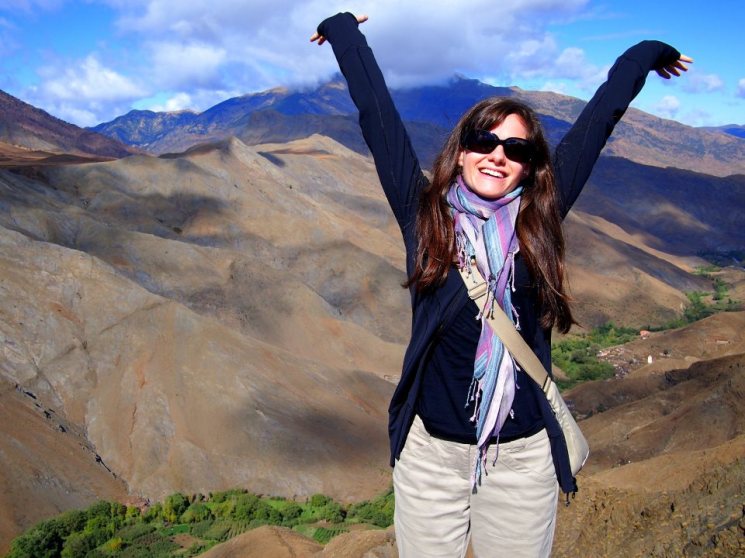
1. Where are you now, and where are you headed?
I’m answering this on a flight from Istanbul to Amman, actually. Hurray for Gmail Offline. I spent the fall in Turkey, Morocco and England and am headed to Thailand again after my weeks in Amman. I can’t stay away from sticky rice too long.
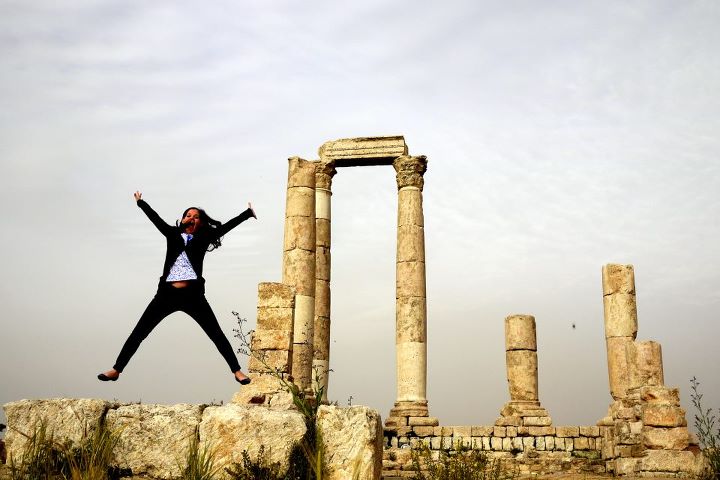
2. You’re great at reporting and sharing stories that matter, both on your blog and on social networks. What gives you the drive to document all these stories and share them with your fans and followers?
There’s a bit of a delineation between the stories I share on the blog and the links and information I posted to Twitter. I used to have a newsletter I sent out daily as a lawyer that cobbled together the science, tech and political news of the day, with copious geekery thrown in. When I quit to travel, I stopped sending it out, but Twitter has become a repository for real-time distribution of links to learn from. On the other hand, the blog houses all the transportation misadventures, longer form narrative about spices, food and connecting with people as a traveler, and photoessays from the road. Throughout, I’ve tried to keep a sense of humour about the more ridiculous of stories; it’s always helpful to not take yourself so seriously.
In the coming months, I hope to bridge those two versions of my online self with a Legal Nomads newsletter. The newsletter will cobble together the best of the links from Twitter and Google+ and also round up the stories I’ve written, each with editorial. I’m looking forward to getting it off the ground because it’ll mean circling the two aspects of what I love to do online, both involving sharing.
3. I heard you had an Olympus EP-3 camera, and use it with a Panasonic 20mm 1.7 lens. I’ve got the same lens myself, coupled with a Panasonic GF1. How have you enjoyed the micro four thirds format so far, and what’s your favorite photo taken with this camera?
I really do love the new camera. People would write and ask what lens I was using from the Myanmar or Thailand photos, which is fun because (as you know) I was just using a point and shoot. The answer would be met with incredulity, as though you have to have a terrific camera to get a good capture. However, I have noticed a difference with the new E-P3 – photos are more crisp, the colour seeps through so much more beautifully and with the 20mm lens I’m able to get close and personal with what I’m eating.
Despite the camera’s lens being used primarily for macro shots, my favourite photo thus far has been from Istanbul, inside Ayasofia. The moody, gloomy lighting and complicated caligraphy combined with shooting through a pinhole has made this my pick. So many to choose from though; I’m like a kid in a candy store when I pour over the photos from the new lens.
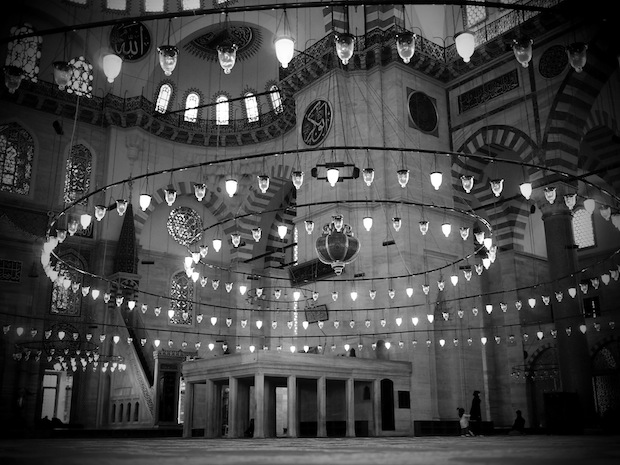
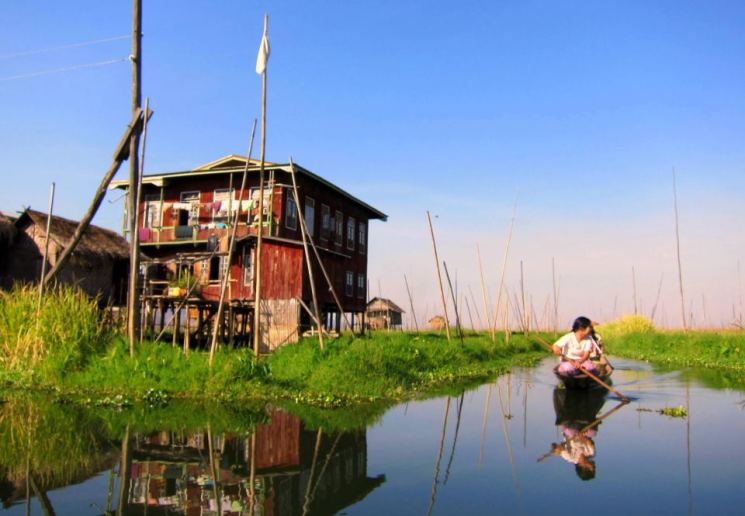
4. You wrote an entertaining post entitled “It’s Not a Proper Bus Ride Without A Chicken or Two” about public transportation in Laos. I guess it’s safe to say that traveling by bus gets you up close and personal to locals. Can you share a memorable bus story with us?
It’s true! I think that story was a wonderful one, highlighting the differences between our culture and those from elsewhere. The kids on the bus were all vomiting because of the ride, the entire group of us were laughing each time (as were the kids between retches) and what could have been a total disaster was actually a very funny and heartwarming trip.
One of my favourite bus moments was also one of the more absurd, when I was in the middle of a 30-hour gauntlet from Flores back to Lombok, careening atop a minivan with a goat in my lap. The ticket collector climbed up to the roof to ask me for a ticket, and I couldn’t help but laugh – with one hand holding the roof rail and the other holding the baby goat in my lap, there was no way he was going to get a ticket from me until we stopped.
5. How do you usually plan for a bus ride if you don’t find bus schedules online?
I ask at the hostel or place I’m staying, look at some of the forum responses online but what inevitably happens is that I arrive in a place and get to the bus station the day or two ahead of my planned departure, to get the bus ticket sorted and find out the schedules for the region overall.
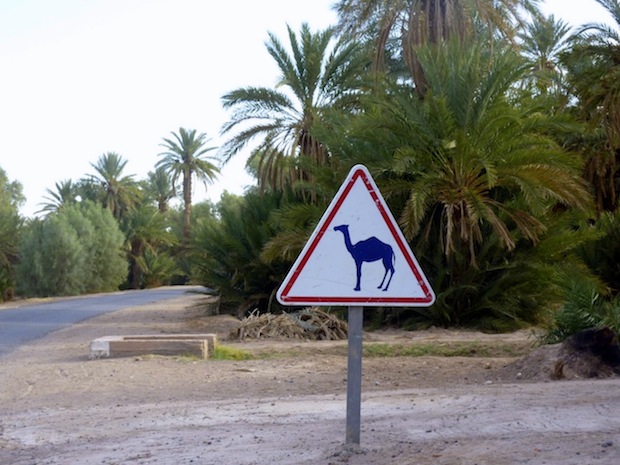
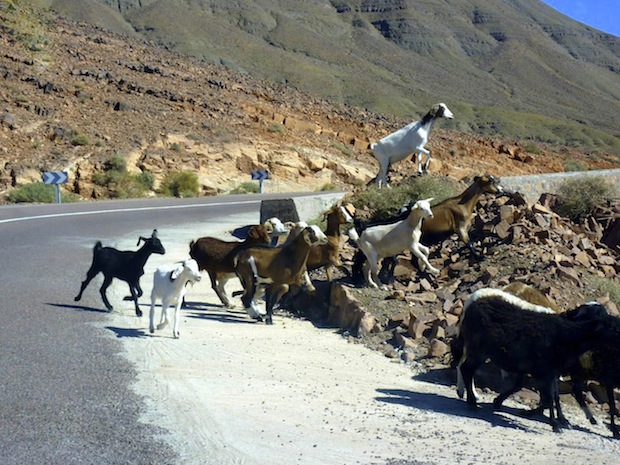
6. At Busbud, our mission is to make bus travel information easy to find so that travelers can make better travel decisions. Do you think this is a worthwhile goal, and one that would benefit the travel community?
I do! While there are many forums and great resources online, a bus-specific site is a great node for connecting people to necessary information, and I think buses are certainly a very common way to travel. The downside is the changeability of schedules and the fact that some buses just leave whenever they’re full, as opposed to when they are supposed to leave. But those are small hiccups in what could be a great, comprehensive database of useful information for the travel community.
7. You’re a fellow McGill alumni, like three of us at Busbud! What advice would you give students who are about to graduate and are choosing between travel and starting their career right away?
I highly encourage travel, of course, but I do think it’s great to leave the longer-term trips for later on, after a few years of work. For starters, it gives you some savings to have on hand before you go, but also some useful skills and dealing with management hierarchies before you’re on the road. It’s a controversial response because so many people do encourage going to travel at any point, but personally I was glad to have set up a worst case scenario to revert back to – if I stopped travelling, I could go and do legal work again. The contacts you make as you start out from school are great ones to have as you travel, and people who can help you get reacquainted upon a return.
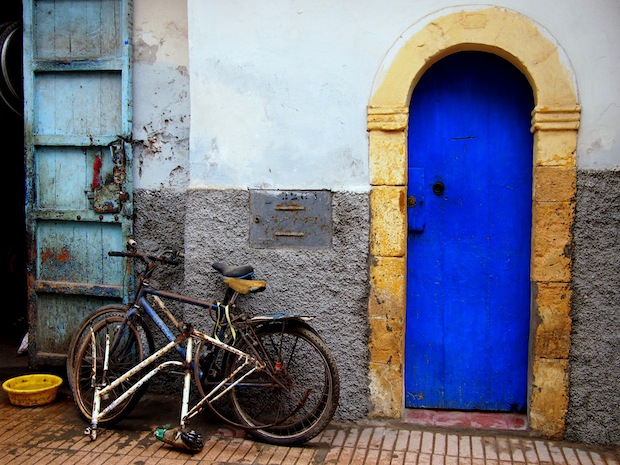
8. Finally, you’re a great example of a person who has fully embraced travel and all that it has to offer. You’ve detailed many of the benefits on your blog, including how travel helps keep your life in perspective. Can you summarize what you think are the best benefits of travel?
I think travel is an education in and of itself. Combined with whatever you bring to the table as a citizen of the world, travel makes you more attuned to your surroundings, more adaptable when things go awry and more interesting as a human being. As you’ve said, it also helps you keep your life in perspective, helping you recalibrate to what life sends your way. It’s also a great way to make lifelong friends, all around the world.
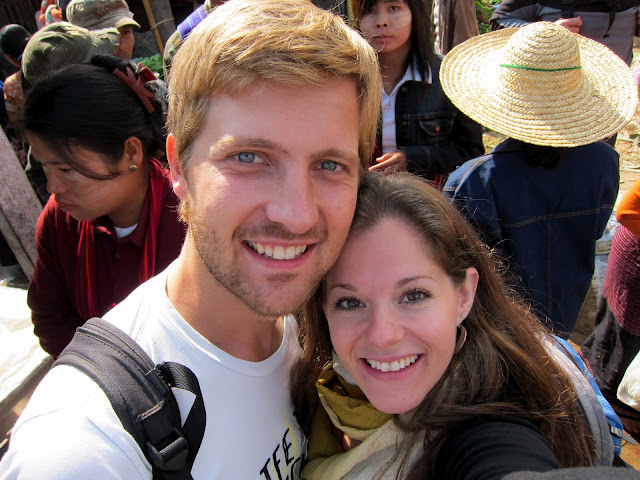
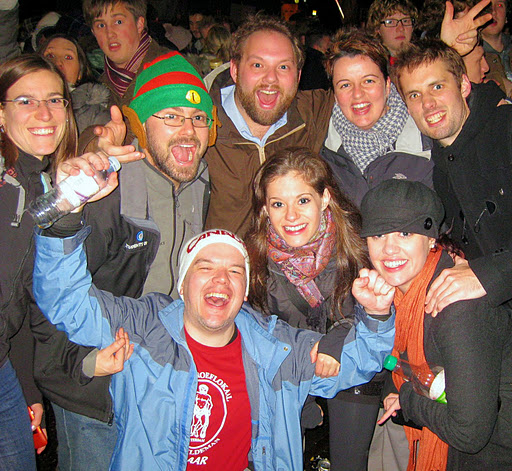
Thanks Jodi!
You can get in touch with her on Facebook, Twitter and Google+. And of course, visit her blog Legal Nomads to follow her adventures.
Photos by Jodi Ettenberg at Legal Nomads